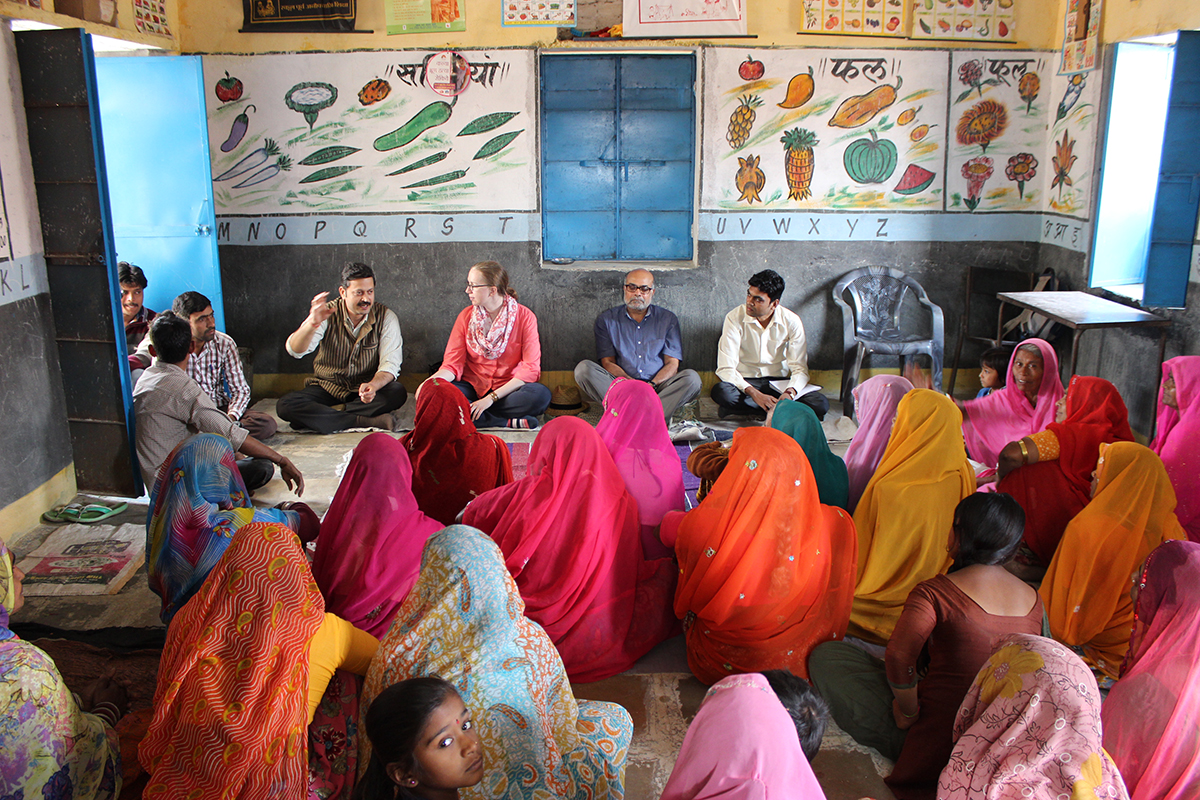$13.4 million grant will help combat malnutrition in India
By Matt Hayes

A Cornell University project to enhance access to nutritious food in India is set to grow thanks to a $13.4 million grant from the Bill & Melinda Gates Foundation. Funding to the Tata-Cornell Agriculture and Nutrition Initiative (TCi) will allow the project to scale up its work promoting a more nutrition-sensitive food system aimed at bolstering the diet of the rural poor, particularly for women and children.
The four-year grant establishes Technical Assistance and Research for Indian Nutrition and Agriculture (TARINA), a consortium linking Cornell with university and nongovernmental organization partners. The TARINA project launched Dec. 1 with the goal to fund research and enact policy changes that enhance the availability and affordability of nutrient-rich food.
Over the past 50 years, the Green Revolution in India has helped transform the subcontinent’s countryside into productive plots dedicated to the staple grains wheat, rice and maize. But the conversion of diverse farmland into monoculture fields has come at the expense of micronutrient-rich crops, leaving much of the rural population chronically malnourished despite growing abundance in their midst. TCi launched in 2013 as a research initiative to develop solutions in a country where childhood stunting and anemia in women threaten long-term health and development.
Led by the TCi, TARINA links the evidence-generating capabilities of the International Food Policy Research Institute, the Tata Institute of Social Sciences, Emory University and Cornell with the implementation and technical capacity and experience of leading NGO partners BAIF and CARE. The Tata Trusts, India’s leading philanthropy, will support the consortium through their convening power and influence with policymakers at the national and state levels.
Prabhu Pingali, professor of applied economics and management and director of TCi, says the project has three core missions: to collect data and evidence that informs policy reform related to diet quality; to redesign agricultural projects with a focus on nutrition; and to help build capacity to make reforms possible.
The grant will also establish a Center of Excellence to be located in Delhi to serve in part as a data and information hub, as well as a source of technical expertise on nutrition sensitive food systems.
Pingali said the dilemma of Indian malnutrition isn’t about the amount of food grown but rather the diversity of available foods. The consortium plans to influence the design of ongoing and future agricultural projects and policies with an eye on increasing the rural poor’s year-round access to an affordable food system replete with fresh fruit, vegetables, livestock products and pulses – the high-protein, micronutrient-dense legumes such as beans, peas and lentils essential to a predominantly vegetarian population.
“The push toward staple grains has inadvertently crowded out micronutrient-rich food,” says Pingali. “To enact meaningful reform it’s not just enough just to say, ‘let’s produce a more diverse diet.’ You need a behavioral change.”
That change centers in many ways on the role of women. In rural India, most homestead farms grow staple grains on two to four acres of land with labor largely supplied by women. In Indian culture it’s typical for men to dine first, leaving less desirable food to the women in a custom that reinforces malnourishment, according to Pingali.
The project aims to empower women by in part strengthening their access to leadership roles in producer groups and promoting labor saving techniques, such as mechanical rice-planting technologies that eliminate the grueling labor needed to plant rice by hand.
Pingali says that Cornell provides an array of premier researchers and resources that will be critical to the success of the program. In addition to the Charles H. Dyson School of Applied Economics and Management, Cornell’s Division of Nutritional Sciences, the School of Integrative Plant Sciences, Department of Animal Sciences and the Department of Communication will provide expertise for this project.
Matt Hayes is managing editor and social media officer for the College of Agriculture and Life Sciences.
Media Contact
Get Cornell news delivered right to your inbox.
Subscribe